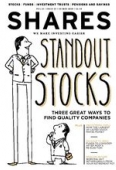Archived article
Please note that tax, investment, pension and ISA rules can change and the information and any views contained in this article may now be inaccurate.
Polarised Brexit views leave investors in the dark

If investors had hoped for clearer direction of the UK economy and its stock markets they have been left sorely disappointed in the wake of European elections and the news that Theresa May has finally called it quits.
The centre ground has almost completely given way as the UK electorate becomes increasingly polarised over Brexit, leaving British businesses facing all too familiar questions about future trade access to Europe and how or even if they should invest for the months and years ahead.
‘The uncertainty surrounding Brexit is having a real impact on business in the UK, the EU, and those around the world that trade internationally’, says Nigel Green, chief executive of independent advisor deVere Group.
‘This uncertainty has created a tangible lack of confidence, resulting in falling investment, spending and recruiting across Britain.’
MIXED MESSAGES
This creates mixed messages for investors and is reflected in UK stock markets that remain stuck in drift pattern. At the current 7,272.71 (as of midday 28 May) the FTSE 100 index has barely budged from where it ended March.
‘UK gilts have strengthened following the election results,’ points out wealth manager Killik & Co which in theory is encouraging news for safety-seeking savers. Yet the pound has weakened versus the US dollar of late having strengthened in the immediate aftermath of May’s departure being announced.
The softening of sterling in the near-three years since the EU referendum indicates how investor confidence has drained away from UK assets, but there are silver linings.
First, a weak pound makes the products and services sold internationally by UK businesses less expensive, so more competitive with overseas competitors, implying firm demand and underpinning existing revenue and profit forecasts. With something like 70% to 75% of FTSE 100 sales coming from foreign markets, this is important.
Secondly, it also makes UK stocks cheaper for overseas investors, implying a further prop to current share prices.
But it remains to be seen whether investors believe that UK share prices are cheap enough to offset the perceived threat of a no-deal Brexit, a new referendum, a potentially savage race to replace May at the head of the Conservatives, and perhaps most feared by investors, a general election from which a Jeremy Corbyn-led government emerges.
The next big development to watch is likely to be the Conservative leadership election, a process which will get underway after May steps down as party leader on 7 June and is expected to conclude by mid-July after first MPs and then Conservative Party members have had their say.
Important information:
These articles are provided by Shares magazine which is published by AJ Bell Media, a part of AJ Bell. Shares is not written by AJ Bell.
Shares is provided for your general information and use and is not a personal recommendation to invest. It is not intended to be relied upon by you in making or not making any investment decisions. The investments referred to in these articles will not be suitable for all investors. If in doubt please seek appropriate independent financial advice.
Investors acting on the information in these articles do so at their own risk and AJ Bell Media and its staff do not accept liability for losses suffered by investors as a result of their investment decisions.

 magazine
magazine









